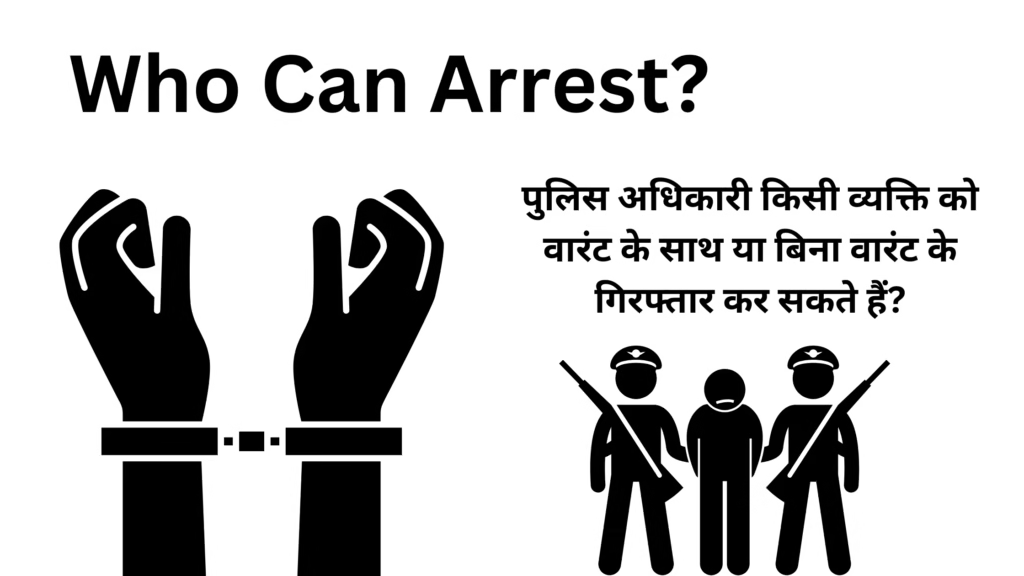Criminal procedure ensures justice, fairness, and protection of rights during the investigation and trial of an accused person. It is governed by the Criminal Procedure Code (CrPC), 1973 and constitutional provisions of India.
1. Rationale of Criminal Procedure & Importance of Fair Trial (आपराधिक प्रक्रिया की तार्किकता और निष्पक्ष सुनवाई का महत्व)
📌 English:
- The criminal justice system is based on the principle of fairness, due process, and rule of law.
- A fair trial ensures that an innocent person is not punished and the guilty is convicted based on legal evidence.
- Article 21 of the Indian Constitution guarantees the right to life and personal liberty, ensuring a fair trial for every accused.
📌 हिंदी:
- आपराधिक न्याय प्रणाली का आधार निष्पक्षता, विधिक प्रक्रिया और कानून का शासन है।
- निष्पक्ष सुनवाई यह सुनिश्चित करती है कि निर्दोष को दंडित न किया जाए और अपराधी को वैध साक्ष्यों के आधार पर दोषी ठहराया जाए।
- भारतीय संविधान का अनुच्छेद 21 हर व्यक्ति को जीवन और व्यक्तिगत स्वतंत्रता का अधिकार देता है, जो निष्पक्ष सुनवाई की गारंटी देता है।
2. Pre-Trial Process: Arrest (पूर्व परीक्षण प्रक्रिया: गिरफ्तारी)
📌 English:
- Arrest is the process where a person is legally taken into custody for investigation or trial.
- It must be conducted as per CrPC and constitutional rights to prevent unlawful detention.
📌 हिंदी:
- गिरफ्तारी एक प्रक्रिया है जिसमें किसी व्यक्ति को कानूनी रूप से हिरासत में लिया जाता है।
- यह CrPC और संवैधानिक अधिकारों के अनुसार होनी चाहिए ताकि अवैध हिरासत को रोका जा सके।

3. Cognizable vs. Non-Cognizable Offenses (संज्ञेय और असंज्ञेय अपराधों के बीच अंतर)
📌 English:
| Aspect | Cognizable Offense (संज्ञेय अपराध) | Non-Cognizable Offense (असंज्ञेय अपराध) |
|---|---|---|
| Definition | A serious offense where police can arrest without a warrant. | A less serious offense where police need prior approval from a magistrate for arrest. |
| Examples | Murder, Rape, Kidnapping, Robbery | Defamation, Public Nuisance, Simple Hurt |
| CrPC Section | Section 2(c) | Section 2(l) |
| Punishment | More than 3 years of imprisonment or life imprisonment | Less than 3 years of imprisonment or fine |
📌 हिंदी:
| पहलू | संज्ञेय अपराध | असंज्ञेय अपराध |
|---|---|---|
| परिभाषा | गंभीर अपराध जिसमें पुलिस बिना वारंट गिरफ्तारी कर सकती है। | कम गंभीर अपराध जिसमें गिरफ्तारी के लिए मजिस्ट्रेट की अनुमति आवश्यक है। |
| उदाहरण | हत्या, बलात्कार, अपहरण, डकैती | मानहानि, सार्वजनिक उपद्रव, साधारण मारपीट |
| CrPC धारा | धारा 2(c) | धारा 2(l) |
| सजा | 3 वर्ष से अधिक की कैद या आजीवन कारावास | 3 वर्ष से कम की कैद या जुर्माना |
4. Steps to Ensure the Accused’s Presence at Trial (अभियुक्त की उपस्थिति सुनिश्चित करने के कदम)
- Warrant and Summons (धारा 61-90 CrPC)
- Summons for minor offenses, warrants for serious offenses.
- Bail conditions to ensure presence.

5. Arrest with and Without Warrant (वारंट के साथ और बिना वारंट गिरफ्तारी) – Sections 41, 71-73
📌 English:
- With Warrant (धारा 71-73): Issued by a magistrate for serious crimes.
- Without Warrant (धारा 41): Allowed in cognizable offenses if police suspect the person’s involvement.
📌 हिंदी:
- वारंट के साथ (धारा 71-73): मजिस्ट्रेट द्वारा गंभीर अपराधों में जारी किया जाता है।
- बिना वारंट (धारा 41): पुलिस संज्ञेय अपराधों में गिरफ्तारी कर सकती है।
6. Absconder Status (फरार घोषित करने की प्रक्रिया) – Sections 82, 83, 85
- Section 82: If a person fails to appear, the court declares them an absconder.
- Section 83: Court can attach property of the absconder.
- Section 85: The state can confiscate the property permanently.
7. Rights of Arrested Person (गिरफ्तार व्यक्ति के अधिकार)
- Right to Know Grounds of Arrest (धारा 50, 51, 55, 75)
- Right to be Taken to Magistrate Without Delay (धारा 56, 57, अनुच्छेद 22(2))
- Right to Legal Aid and Bail (धारा 41D, 303, 304)
- Right to be Examined by a Medical Practitioner (धारा 54 CrPC)
8. Search and Seizure (खोज और जब्ती) – Pre-Trial Process
📌 English:
- Search with Warrant (धारा 84, 93, 97, 98) – Ordered by a magistrate.
- Search Without Warrant (धारा 165, 166, 153) – Conducted by police in urgent cases.
- General Principles of Search (धारा 100) – Ensures fair and legal search procedures.

📌 हिंदी:
- वारंट के साथ तलाशी (धारा 84, 93, 97, 98) – मजिस्ट्रेट के आदेश पर की जाती है।
- बिना वारंट तलाशी (धारा 165, 166, 153) – आवश्यक स्थितियों में पुलिस कर सकती है।
- तलाशी के सामान्य सिद्धांत (धारा 100) – निष्पक्ष और कानूनी प्रक्रिया सुनिश्चित करता है।
🔹 Conclusion (निष्कर्ष)
- Criminal procedure protects the rights of the accused and ensures fair justice.
- Fair trial is a fundamental right under Article 21 of the Indian Constitution.
- The law provides clear rules for arrest, search, bail, and absconder status to prevent misuse of power.
💡 This covers all key aspects in both Hindi and English. Let me know if you need more details! 😊

